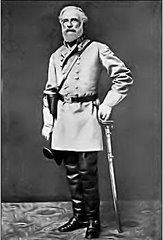The following is an excerpt from a greater piece I am working on. This deals with looking at economics philisophically, and with a Christian worldview. May you enjoy.
The Origin of Economics
We have talked greatly about what economics is in relativity to the world today, but we have not really failed to grasp where the origin of economics comes from. To follow the logical coherence, we force ourselves to ask where the origin of life as we know it comes from, or the origin of the basic principles of human action, inaction, and relationships comes from, given that this is essentially what economics is the study of.
I remember once my younger sister asking the question to my Father, "Why do we have money?" She argued, "Why can't we have stores where people just go get what they want?" My Father answered her asking back, "How much is too much for the people? What if I get something I do not earn?" She answered back, "I guess that the they can make you get only a certain amount." When my Father asked her who "they" would be, my sister said, "I guess the government."
Although the economics my sister brought forth and proposed to my Father were full of fallacies, and was essentially communism, I do not wish for this little section to merely criticize her. She was young, and at least she was thinking about economics. Furthermore, her basic question really spawns us into the entire origin of economics altogether. The basic principles my Father argued against her answered her question, and the question of the origin of modern-day economics altogether (economics as the course of human nature, not the modern economic thought).
A (The Fall of Man)
The origin of modern-day economics, at least according to a Christian perspective, comes in the Garden of Eden. This is where the origin of human relations and actions and inaction as we know it began. But it did not begin at creation. After creation, there was another level that came to humanity, that changed our economic laws altogether. This was the Fall of man. The Fall in a way was almost an altering of the Natural Law that existed. Due to the Fall of man, our principles on government, justice, and economics have changed.
It is interesting that Adam and Eve ate the fruit of the forbidden Tree of the Knowledge of Good and Evil, in order to become "like God." They ate the fruit to increase dominion and liberty. Even though there was an abundance of fruit, animals, and many other blessings of the world as they knew it, they wanted to increase their liberty the little more that they could. As a result, they fell into a world of pain and sorrow. The world essentially went from ever living to ever dying. Only by super human action to remodel creation could the world return to the stages of that it was in before the Fall. Even though man was in the world to remodel creation before the Fall as well, there was now much more work needed to be done. The world, in a way, needed resurrecting.
Because the world was ever dying, we entered a world of scarcity. That which Adam and Eve had was now scarce. Furthermore, it would be by the "sweat of [their] brow" that they would enjoy the fruits of the trees and all the other blessings. Now they must not only work, but they must work at the expense of giving up that which they want so that the world would be a better place, and they would be better people.
B (Our Economic Purpose)
All of this is consistent with the New Testament teachings of Paul and Jesus. Our liberty comes from our bondage to God. I have quoted 2 Corinthians 3:17 much before, stating, "Where the Spirit of the Lord is, there is liberty." Furthermore, the act of giving up something for something greater in return in also Scriptural. Christians are supposed to give their all for the sake of God's Kingdom, to enjoy in His righteousness and glory.
By this same token, the only way to decrease the scarcity of that which is on earth is to give up a portion of that which we have, in order to get it all back and more. Without sin, our economics would be different. The sinless descendents of Adam and Eve would not take the property of others. It would be immoral, and man would not be immoral creatures. But also, there would be abundance in the world, so why should we steal property in the first place? We would claim what we have, and give up much less for our rewards. Having real "money," though perhaps not being non-existent, would have less reasons for its existence.
In the grand scheme of things, we are equal partakers of the world with certain unalienable Rights (Natural Rights). This is something that did carry through over the Fall. Among these Rights is the Right to property. My sister was actually (even in her very flawed economics) getting to a good point. We are equal partakers of this world. Therefore, that which we earned, we went and got ourselves. But we did not go get it from a store. We got it from the world and claimed it.
But if it is claimed by someone else already, it is not ours. Not unless we trade. This is why we have money. We work hard for something, only to give it up to another person. But we do this to have something even better for us. We do this privately, helping ourselves, with only us as the attention. But in the grand scheme of things, we each help society in this. Ultimately, Christian economics is really the study of reclaiming what we had before the Fall of man. It is restoring the Christian way. Through this, we give up what we want, in order to have something even better. This is both personal and public.
C (The Purpose of Government)
Along with the Fall of man, we required a necessity for government. Now, government exists to protect our natural Rights, including the Right to property. This is why we punish those guilty of theft. The government, at some level, has the Right to stop of us from totally destroying the planet and defeating the purpose of restoring that which we had before the Fall. Government is force, and even my sister realized this in saying that the government would tell us when too much stuff from the store was "too much" (even though this is an unnecessary use of force, so that part of her logic is flawed). But far too often today, the government in the politically correct name of "environmentalism" defeats the purpose. They fail to understand that in order to have that which we want, we must give up that we have - even if it is scarce. Cutting down trees gives us a use for our natural recourses. Through this use, we may perhaps find something that accomplishes the same goals as cutting down trees, but does it more efficiently and economically. This enables us to restore ourselves to that day in which our economics is full of abundance and pleasure.
Fortunately, we see some of the blessings of good economic policy today (even with a big government). This is called technology. We are constantly coming up with new ways and better ways to do things, making the world less and less scarce. These things are essentially a great aspect of the American Dream, and are done mostly without government.
What do you think?
God bless America
Pray for our Troops
January 13, 2008
Ryan Hampton
Subscribe to:
Post Comments (Atom)










No comments:
Post a Comment